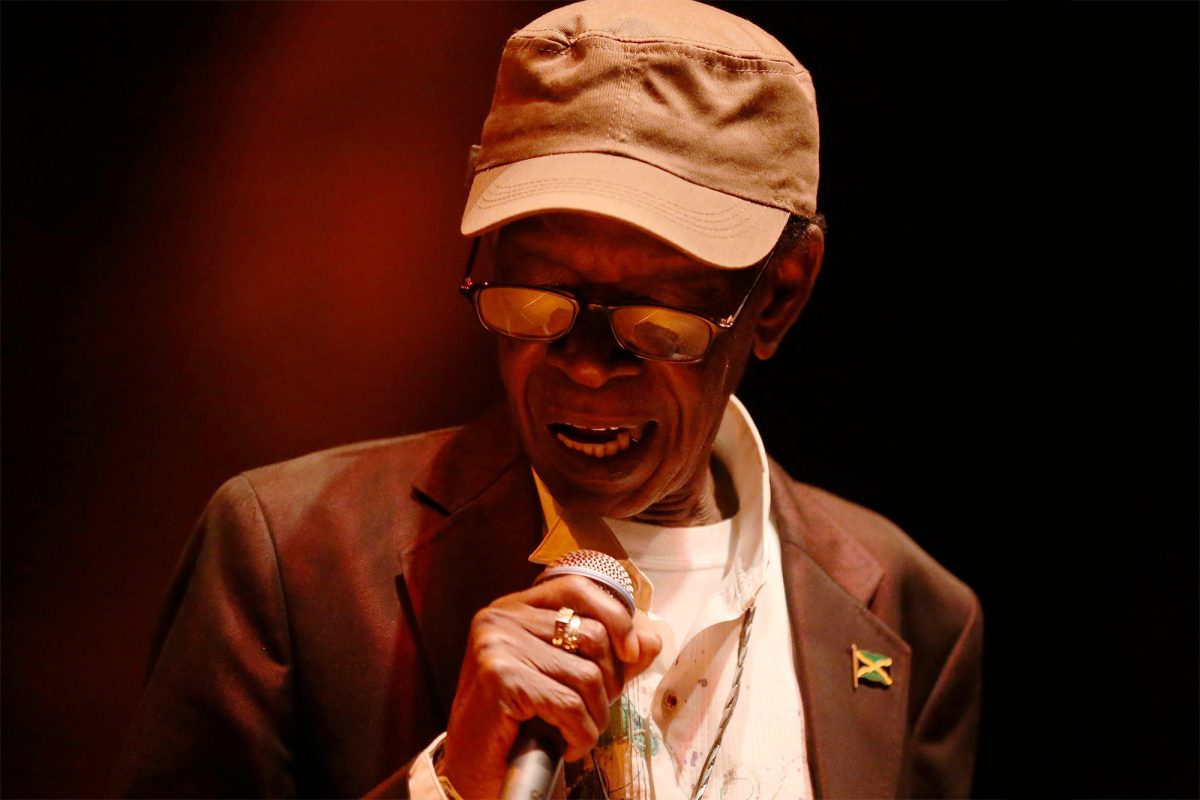Stranger Cole Insists ‘Bangarang’ Was First Reggae Song Ever Recorded

Vintage Reggae singer Stranger Cole (aka Strange Cole) is insisting that his 1968 iconic number one hit Bangarang, a collab with late Skatalites legend Lester Sterling, was the first Reggae song ever to be recorded, and not Nanny Goat by Studio One’s Larry Marshall.
“Bangarang is known to be the first Reggae music and I sung the first reggae song on the music. Because a lot of people have it the wrong way you know. Music, Reggae is not a word, nor Rocksteady…,” Stranger Cole said in an interview at Reggae Jam Festival 2023.
“It is the music that changes that… So when you sing and the changes of music it’s different from a man tell you ‘oh I sing the first reggae music’. No. I sing on the first reggae music yeah,” he explained.
The matter of which was the first Reggae song to be recorded, has been the subject of a decades-old debate as many artists and producers have laid claim to doing the first Reggae recording and creating the reggae beat.
Toots Hibbert of the Maytals has been credited as the first to mention the name Reggae in a song (Do the Reggay in 1968). However, when the Reggae Interviews host pointed out that Toots Hibbert was among the artists to whom the first Reggae song was attributed, Stranger, after pointing out that it was not the usage of the word “Reggae” which made the song Reggae, made it clear that it is the beat that counts.
“It’s not about you sing the first reggae song. It’s about the first reggae riddim,” he explained.
In 1968, Sterling composed the beat for Muma No Want Bangarang, a song written by Stranger Cole, which was an adaptation of Kenny Graham and his Afrocubists 1950s hit Bongo Chant.
A January 2012 article in the Gleaner titled The Emergence of Reggae, noted that most musicologists have accepted Nanny Goat, which was recorded for producer Clement Dodd in 1968, as “the first recording with a true Reggae feel” and was “like the guitar on the delay meshed with an organ shuffle.”
The Gleaner article noted that “in a sense, reggae combines all the previous forms of Jamaican popular music – the ska riff on top of a slowed down rocksteady bass line, with a touch of mento.”
It said that Clement Dodd had claimed that he returned from England just before the reggae beat started “with a few gadgets, like a delay, which influenced that Nanny Goat beat” and that while Stranger Cole claimed that Bangarang was the first reggae song, another record producer, Clancy Eccles, had claimed he “started the beat”.
“Many musicologists agree that the birth of reggae was a spontaneous act born out of experimentation with the existing rocksteady beat. Others claim it was a deliberate attempt by some musicians to change the beat from rocksteady to something that was more lively and exciting,” the article noted.
“The theory has also been advanced that new producers like Eccles, Lee Scratch Perry and Bunny Lee, couldn’t always get the regular musicians, who almost invariably worked for Dodd and Duke Reid, so they resorted to less-experienced musicians who tried something different and unwittingly created a completely new rhythm,” it added.
Another Gleaner article published in June 2018, The Music Diaries| Exploring the birth of reggae noted that Bangarang, which featured Lester Sterling on saxophone and Stranger Cole on vocals, was another of the earliest Jamaican recordings that demonstrated the rudimentary reggae rhythm, and laid the foundation for the genre.
“I was passing by Treasure Isle Studios one day, and producer Bunny Lee a very good friend of mine – called me upstairs, where he was doing an instrumental recording called Bongo Chant with saxophonist Lester Sterling. He asked me if I could put some words to it, and I just came up with ‘Mumma no wan bangarang’, and the rest is history,” Stranger Cole was quoted as saying, in explaining how the songs came about.
According to his biography, Stranger Cole was born in Kingston in 1945 and was nicknamed “Stranger” by his family, who thought that he did not resemble any of his kinfolk.
Initially successful as a songwriter, he had written In and out the Window, which was a big hit for Eric “Monty” Morris.
He made his recording debut in 1962, and found instant success with singles such as Rough and Tough and When You Call My Name, which was a duet with Patsy Todd, and which was recorded for producer Arthur “Duke” Reid.
He also recorded numerous collabs, among them World’s Fair with Ken Boothe and Prince Buster; Just Like a River with Gladstone Anderson and Hortense Ellis.
He released his first album, Forward in the Land of Sunshine, in 1976, and released several others over the next decade.
In 2006, Stranger Cole released his first album in 20 years titled Morning Train. He was also featured in the 2009 documentary Rocksteady: The Roots of Reggae, in which he and other singers who ruled the rocksteady era reunited to record a new album of the same name.
